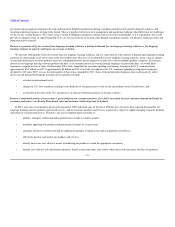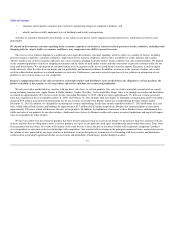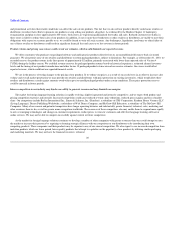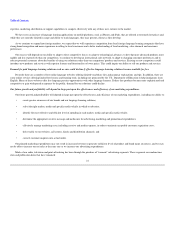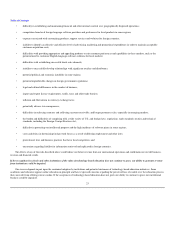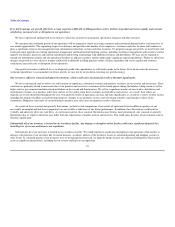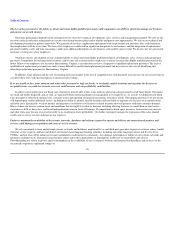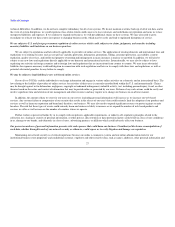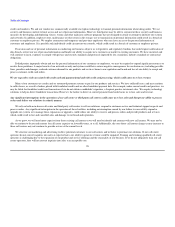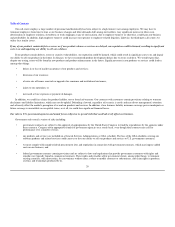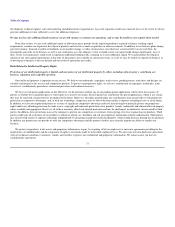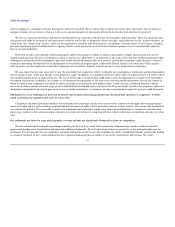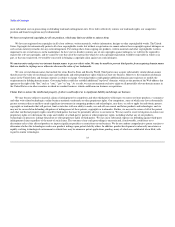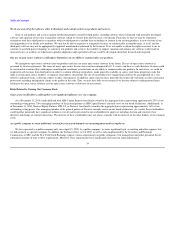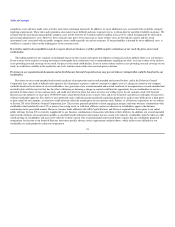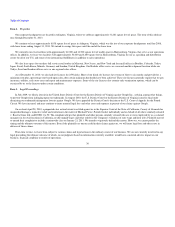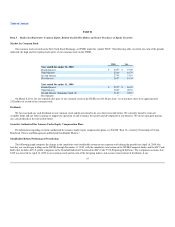Rosetta Stone 2010 Annual Report Download - page 30
Download and view the complete annual report
Please find page 30 of the 2010 Rosetta Stone annual report below. You can navigate through the pages in the report by either clicking on the pages listed below, or by using the keyword search tool below to find specific information within the annual report.
Table of Contents
credit card numbers. We and our vendors use commercially available encryption technology to transmit personal information when taking orders. We use
security and business controls to limit access and use of personal information. However, third parties may be able to circumvent these security and business
measures by developing and deploying viruses, worms and other malicious software programs that are designed to attack or attempt to infiltrate our systems
and networks. In addition, employee error, malfeasance or other errors in the storage, use or transmission of personal information could result in a breach of
customer or employee privacy. We employ contractors and temporary and part-time employees who may have access to the personal information of
customers and employees. It is possible such individuals could circumvent our controls, which could result in a breach of customer or employee privacy.
Possession and use of personal information in conducting our business subjects us to legislative and regulatory burdens that could require notification of
data breach, restrict our use of personal information and hinder our ability to acquire new customers or market to existing customers. We have incurred, and
will continue to incur, expenses to comply with privacy and security standards and protocols imposed by law, regulation, industry standards or contractual
obligations.
If third parties improperly obtain and use the personal information of our customers or employees, we may be required to expend significant resources to
resolve these problems. A major breach of our network security and systems could have serious negative consequences for our businesses, including possible
fines, penalties and damages, reduced customer demand for our products and services, harm to our reputation and brand and loss of our ability to accept and
process customer credit card orders.
We are exposed to risks associated with credit card and payment fraud and with credit card processing, which could cause us to lose revenue.
Many of our customers use credit cards or automated payment systems to pay for our products and services. We have suffered losses, and may continue
to suffer losses, as a result of orders placed with fraudulent credit cards or other fraudulent payment data. For example, under current credit card practices, we
may be liable for fraudulent credit card transactions if we do not obtain a cardholder's signature, a frequent practice in internet sales. We employ technology
solutions to help us detect fraudulent transactions. However, the failure to detect or control payment fraud could cause us to lose sales and revenue.
Any significant interruptions in the operations of our call center or third-party call centers could cause us to lose sales and disrupt our ability to process
orders and deliver our solutions in a timely manner.
We rely on both an in-house call center and third-party call centers to sell our solutions, respond to customer service and technical support requests and
process orders. Any significant interruption in the operation of these facilities, including an interruption caused by our failure to successfully expand or
upgrade our systems or to manage these expansions or upgrades, could reduce our ability to receive and process orders and provide products and services,
which could result in lost and cancelled sales and damage to our brand and reputation.
As we grow, we will need more capacity from those existing call centers or we will need to identify and contract with new call centers. We may not be
able to continue to locate and contract for call center capacity on favorable terms, or at all. Additionally, the rates those call centers charge us may increase or
those call centers may not continue to provide service at the current levels.
We structure our marketing and advertising to drive potential customers to our call centers and websites to purchase our solutions. If our call center
operators do not convert inquiries into sales at expected rates, our ability to generate revenue could be impaired. Training and retaining qualified call center
operators is challenging due to the expansion of our product and service offerings and the seasonality of our business. If we do not adequately train our call
center operators, they will not convert inquiries into sales at an acceptable rate.
28


